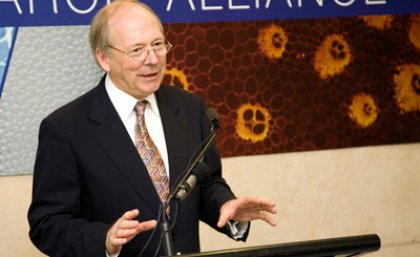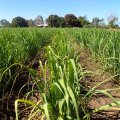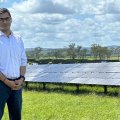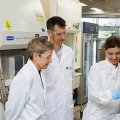
An international collaboration involving the development of next-generation of smart medicines in Brisbane has received a boost, with $485,000 in State Government funding
The Australian Institute for Bioengineering and Nanotechnology has received the state research partnership program funding to build on a strategic link with DSM Biologics.
This will lay the groundwork for a collaboration in which AIBN develops medicines called biologics and DSM produces them in a $65 million scale-up facility, under construction using Federal Government funding at the Princess Alexandra Hospital.
It follows the signing of a memorandum of understanding late last year between AIBN, based at The University of Queensland; the Dutch biopharmaceutical manufacturer; and the State Government.
AIBN brings to the collaboration its expertise in developing mammalian cell lines, which form the basis of biologics – seen as a promising new prospect in smart medicines.
Integral to this capability is AIBN's National Biologics Facility, which received a further $1.2million in State Government co-investment funding.
Biologics are medicines based on natural proteins made using DNA technology with the potential to target medical conditions for which there are no other treatments.
They offer the only known potential treatment for Hendra virus infection and offer new treatment options for diseases including cancer and auto-immune disorders.
AIBN Director Professor Peter Gray said working in collaboration with DSM was exciting, given the company had a global reputation for biologics production.
“Having DSM operating a scale-up facility in Brisbane means Queensland research can be taken from the lab, through manufacturing, to the market,” Professor Gray said.
“Researchers want their work to make a difference to the lives of people outside the lab.
"Working on biologics at AIBN is about bringing about improvements in human health.”
The scale-up facility is under construction as part of the Translational Research Institute, a $354 million facility aimed at improving and accelerating medical research and translating that research into improved patient care.
It will allow biopharmaceuticals to be produced, clinically tested and manufactured in one location, with a focus on cervical and breast cancer; melanoma; liver and kidney disease; malaria; HIV; osteoporosis; obesity; arthritis; and diabetes.
Watch a Queensland Government video of Professor Gray discussing ground-breaking work at the AIBN in biologics at: http://www.youtube.com/watch?v=H5nI8VWFym4&feature=share&list=ULH5nI8VWFym4
Media: Erik de Wit (0427 281 466, 3346 3962 or e.dewit@uq.edu.au)













